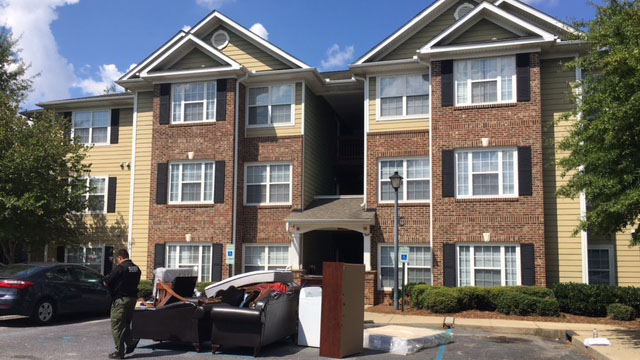Your rights as a renter in Pa. and N.J.
by Caitlin McCabe, STAFF WRITER @mccabe_caitlin | cmccabe@philly.com
Find out more about Evictions in your State on NationalEvictions.com – Read the Landlords – Eviction Process in your State
 Revelations in the spring from investigative nonprofit ProPublica were as unexpected as they were troubling: In New York City’s “rent-stabilized” apartments, rents weren’t so stable, after all.
Revelations in the spring from investigative nonprofit ProPublica were as unexpected as they were troubling: In New York City’s “rent-stabilized” apartments, rents weren’t so stable, after all.
Despite a 1974 law enacted to provide rent control to some New York City tenants — legislation aimed at preventing steep increases or arbitrary evictions — a loophole passed by state lawmakers in 2003 actually allows landlords to do the very things the original legislation tried to prevent.
The result: Tenants have seen increases in their monthly rent — sometimes by hundreds, even thousands, of dollars.
The problem, ProPublica found, stemmed from wonky laws — and regulatory agencies that couldn’t quite keep up with monitoring landlords. In theory, nearly one million apartments in New York City are supposed to be rent-stabilized and regulated by the Rent Guidelines Board, which sets allowable increases. But thanks to the loophole, landlords were able to skirt those allowances by offering tenants “preferential rent” — a price lower than the “legal rent” listed on the lease.
Preferential rent can be rescinded when the lease is renewed, ProPublica found, and landlords can suddenly charge their “legal” rent, which many landlords set themselves, because of little oversight. That can result in hundreds or thousands of dollars extra each month — and can lead to eviction and gentrification.
Continue reading →
Tags:
Eviction Information,
New Jersey Eviction Articles,
Pennsylvania Eviction Articles
 Revelations in the spring from investigative nonprofit ProPublica were as unexpected as they were troubling: In New York City’s “rent-stabilized” apartments, rents weren’t so stable, after all.
Revelations in the spring from investigative nonprofit ProPublica were as unexpected as they were troubling: In New York City’s “rent-stabilized” apartments, rents weren’t so stable, after all.




 A notary public is a public officer of the state, authorized by law to certify documents, take affidavits, and administer oaths. Currently, notaries must live in Indiana, acquire a $5,000 bond and are limited to a $2 fee for services. To bring Indiana’s notary laws in to the 21st century and in line with the rest of the nation, the Governor has just signed a new notary law that will take effect July 1, 2018.
A notary public is a public officer of the state, authorized by law to certify documents, take affidavits, and administer oaths. Currently, notaries must live in Indiana, acquire a $5,000 bond and are limited to a $2 fee for services. To bring Indiana’s notary laws in to the 21st century and in line with the rest of the nation, the Governor has just signed a new notary law that will take effect July 1, 2018.











